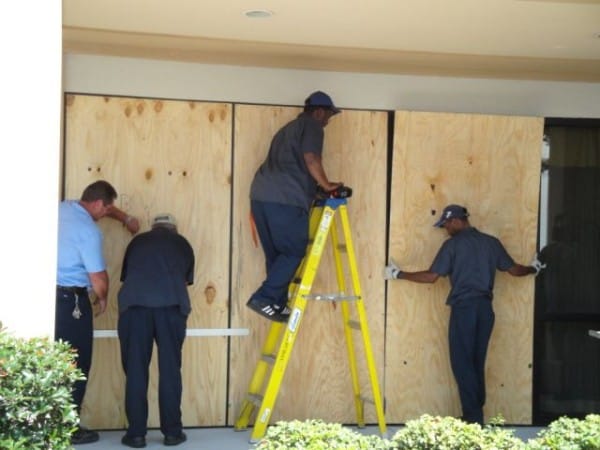Hurricane Isaac Threat to New Orleans on Katrina Anniversary

Residents along the coast preparing for Hurricane Isaac’s arrival. Credit: Kelly Smoot / CNN

Hurricane Isaac threat to New Orleans has failed to spark a national debate on global warming but it will test the city's new levee system.
Hurricane Katrina hit the Gulf Coast Aug. 29, 2005 devastating New Orleans and killing over 1,800 people. Now Hurricane Isaac threatens to hit the city seven years later.
“It is quite ironic that we have a hurricane threatening us on the seventh anniversary of Katrina,” New Orleans Mayor Mitch Landrieu said at a press conference Monday.
Tropical Storm Isaac will be a Category 1 or 2 hurricane, but it will not reach the strength of Katrina.
The eerie reminder of the devastation Katrina brought to the city and the political missteps that followed have some residents on edge while others remain unfazed.
“I want to tell everybody now that I believe that we will be OK,” Landrieu added. "There is nothing this storm will bring us that we are not capable of handling."
According to Landrieu, the levees had over $10 billion in improvements since Katrina and the city's pump stations are poised with backup generators.
Colonel Edward Fleming, commander of the U.S. Army Corps of Engineers, said those improvements to the system will put the city in a far better position than it was seven years ago.
Tim Doody, the president of the levee board that oversees Orleans and St. Bernard Parishes, is not satisfied with the 100-year storm level of protection.
“Other developed countries are building to a much higher standard,” he told CNN. "Surely it's going to be more expensive to do that, but a 100-year standard is not what we would have them build to. We would like 500-year or a 1,000-year.”
But according to Doody, the nation would only pay for, and FEMA would only insure, the current level of protection which is expected to easily ward off Hurricane Isaac.
Environmental Issues
Despite the near-collision Hurricane Isaac had with the Republican National Convention, there has been little talk about the environment and climate change.
Both parties have dismissed environmental issues in favor of talking about the hot ticket items such as the economy and healthcare.
Senator Bernie Sanders, a Vermont independent who often votes with Democrats, said at a hearing on climate change:
“We can’t run away from the issue. We need to put it front and center.”
This year alone, the United States has experienced nationwide drought, warmer winters and now Hurricane Isaac.
While the Democratic Party platform rejects the choice of a healthy economy over a healthy environment, politics seems to be forcing their hand to do so.
President Obama has voiced his concerns of climate change and has dubbed it a severe threat although he has not made efforts to bring the issue to the forefront of his campaign as he previously said he would.
"This is going to be a debate that will become part of the campaign,” he told Rolling Stone Magazine in April. “And I will be very clear in voicing my belief that we're going to have to take further steps to deal with climate change in a serious way."
The Republican Party has long been in favor of using market-based solutions to environmental problems but has also adamantly denied man-made climate change.
A year ago, Gov. Romney told a crowd that he believed "the world is getting warmer, and I believe that humans have contributed to that.”
But Romney has since decided that he is no longer sure if humans have contributed and that spending the money to try to reduce CO2 emissions “is not the right course for us."
The EPA carefully credits climate change to “changes in the greenhouse effect, variations in the sun’s energy reaching Earth and changes in the reflectivity of Earth’s atmosphere and surface," clearly trying to remain out of the politics of the issue.
Whether one thinks climate change is caused by man or a natural phenomenon, it is becoming more difficult to deny its existence. At the same time, climate change has become a deeply polarized issue, stalling any protective or preventative action.





